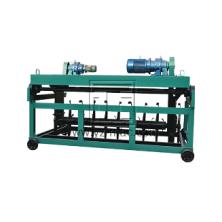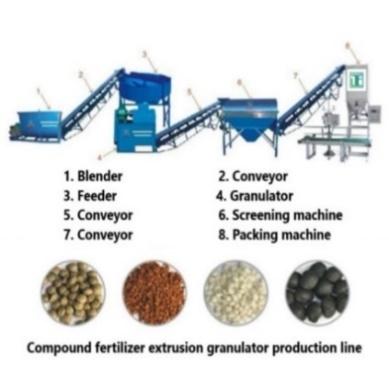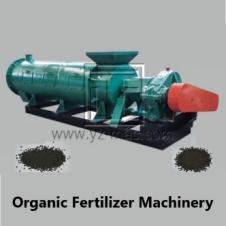Large scale composting
Large-scale composting is an effective and sustainable waste management approach that involves the controlled decomposition of organic materials on a significant scale. This process converts organic waste into nutrient-rich compost, minimizing landfill waste and contributing to environmental sustainability.
Benefits of Large-Scale Composting:
Waste Diversion: Large-scale composting diverts a significant amount of organic waste from landfills, reducing methane gas emissions and alleviating the burden on waste disposal sites. It promotes a circular economy by turning waste materials into valuable resources.
Soil Improvement: The compost produced through large-scale composting acts as an organic soil amendment, enriching the soil with nutrients, organic matter, and beneficial microorganisms. It improves soil structure, enhances moisture retention, and promotes healthy plant growth, thereby reducing the need for synthetic fertilizers and pesticides.
Greenhouse Gas Reduction: By diverting organic waste from landfills, large-scale composting reduces the emission of greenhouse gases, particularly methane. Methane is a potent greenhouse gas that contributes to climate change. Composting instead of landfilling organic waste helps mitigate these emissions and supports climate action initiatives.
Nutrient Recycling: Large-scale composting facilitates the recycling of nutrients present in organic waste materials. The compost produced is rich in essential plant nutrients, including nitrogen, phosphorus, and potassium. By returning these nutrients to the soil, composting closes the nutrient cycle and supports sustainable agriculture and horticulture practices.
Key Considerations for Large-Scale Composting:
Feedstock Selection: A successful large-scale composting operation requires a consistent and diverse feedstock supply. This may include agricultural residues, food waste, yard trimmings, animal manure, and other organic waste materials. Ensuring a balanced mixture of carbon-rich and nitrogen-rich materials is crucial for optimal composting.
Composting Process Management: Large-scale composting involves careful monitoring and management of the composting process. Factors such as temperature, moisture content, aeration, and turning frequency must be controlled to ensure proper decomposition, pathogen reduction, and odor management.
Odor Control: Managing odors is essential for large-scale composting facilities located near residential areas. Implementing effective odor control measures, such as proper pile turning, biofilters, or odor-neutralizing agents, helps mitigate any potential nuisances and maintain good community relations.
Regulatory Compliance: Large-scale composting operations must comply with local regulations and permits governing waste management and environmental protection. Understanding and adhering to these regulations ensures that the composting process operates within legal frameworks and environmental guidelines.
Applications of Large-Scale Composting:
Municipal Waste Management: Large-scale composting is commonly employed by municipalities to manage organic waste generated by households, businesses, and institutions. It offers an environmentally friendly alternative to landfilling, reduces waste management costs, and promotes resource recovery.
Agricultural and Farming Industries: Large-scale composting provides valuable soil amendments for agricultural and farming operations. It helps improve soil health, increase crop productivity, and reduce reliance on synthetic fertilizers. Compost can be applied to fields, orchards, vineyards, and other agricultural areas.
Landscaping and Green Infrastructure: Large-scale composting supports the development of green infrastructure projects, such as parks, urban gardens, and green spaces. The compost produced can be used as a soil amendment, mulch, or topdressing material, enhancing soil fertility and promoting plant growth in these urban environments.
Commercial Composting Facilities: Dedicated commercial composting facilities utilize large-scale composting to process significant quantities of organic waste from various sources. These facilities often collaborate with businesses, restaurants, and institutions to divert their organic waste and produce high-quality compost for sale or distribution.
Large-scale composting is a sustainable and efficient waste management solution that diverts organic waste from landfills, reduces greenhouse gas emissions, and produces nutrient-rich compost. By carefully managing the composting process, selecting appropriate feedstocks, and adhering to regulatory guidelines, large-scale composting can be successfully implemented in various sectors, including municipal waste management, agriculture, landscaping, and commercial composting facilities.






